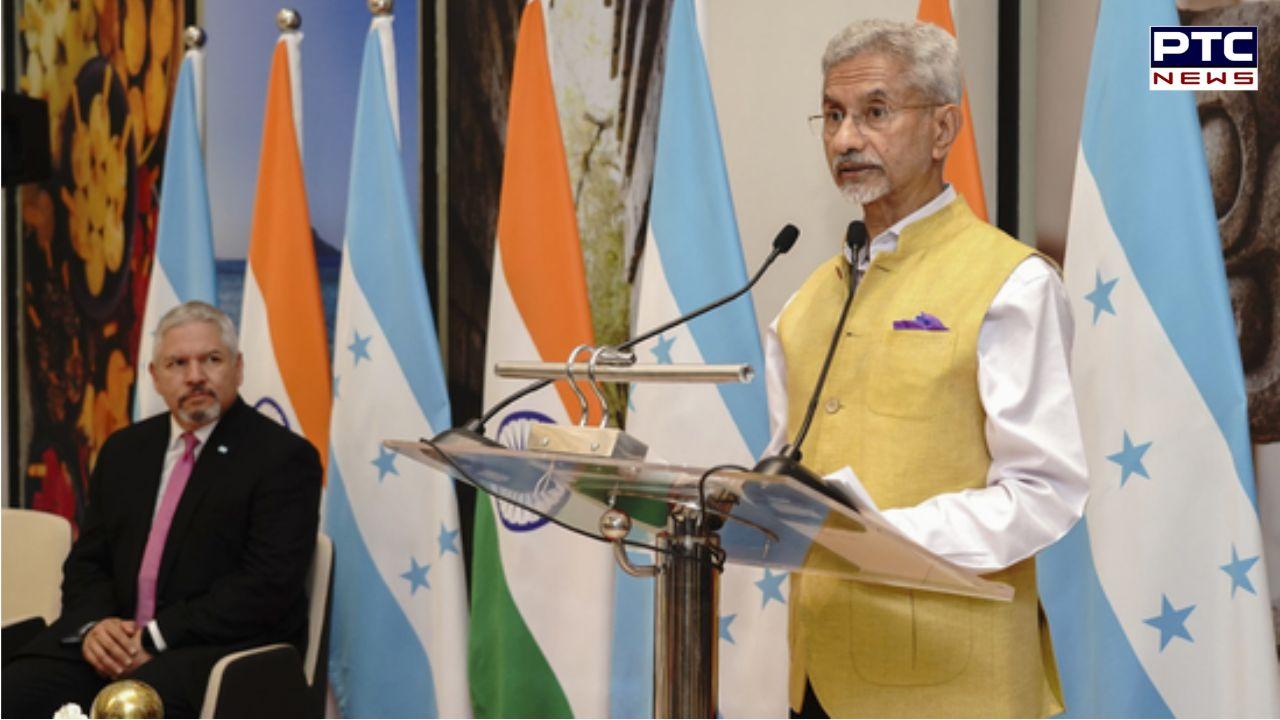

'India’s message is clear—we will hit back if attacks like Pahalgram repeat': Jaishankar on Operation Sindoor
PTC Web Desk: India’s External Affairs Minister S. Jaishankar has reiterated that Operation Sindoor remains active to reinforce New Delhi’s uncompromising stance on cross-border terrorism. Speaking to Dutch public broadcaster NOS, Jaishankar stated that any future attacks akin to the April 22 Pahalgam attack would provoke decisive retaliation, especially if terrorist actors are operating from Pakistani soil.
Operation Sindoor was launched on May 7 as a direct retaliation for the Pahalgam Terror Attack that claimed 26 civilian lives, where attackers deliberately identified victims by their faith, aiming to sow religious discord and damage Kashmir’s tourism sector. The operation targeted nine terrorist hubs in Pakistan-controlled territories, triggering four days of intense military exchanges involving drones, long-range weapons, and missile systems. A mutual cessation of hostilities was achieved on May 10, following India’s significant military retaliation.
“The message is crystal clear—if terrorists attack, we will respond. If they’re in Pakistan, we’ll strike them there,” Jaishankar asserted, emphasizing that the continuation of Operation Sindoor is not equivalent to active hostilities, but a sustained counter-terror posture.
During the interview, Jaishankar rejected the notion that the operation is “dormant,” insisting that India’s intent and capability are evident through its actions.
The minister detailed the lead-up to the ceasefire agreement, which he clarified was a bilateral arrangement between India and Pakistan, following India’s air strikes that rendered eight Pakistani airbases non-operational by damaging runways and command centers. This marked May 10 as a “decisive day” that, according to Jaishankar, compelled Pakistan’s military to seek a halt to the conflict.
Refuting reports of American mediation, Jaishankar said there was no US role in brokering the ceasefire. While leaders like US Secretary of State Marco Rubio and Vice President JD Vance reached out to discuss de-escalation, the final understanding was negotiated directly between Indian and Pakistani military officials.
“We told every country—including the US—that if Pakistan wants peace, we need to hear it directly from them. Their general must call ours—and that’s exactly what happened,” Jaishankar remarked.
He also referenced the Pakistan Army chief’s religious rhetoric a week prior to the Pahalgam attack, stating there was a clear ideological influence behind the atrocity, executed by The Resistance Front, a known proxy of Lashkar-e-Taiba (LeT).
When asked about the broader implications of India’s military posture on economic growth, Jaishankar dismissed concerns, asserting that India’s security challenges have historically been far greater than Europe’s, requiring a higher priority on defense. However, he emphasised that security and economic development are interlinked, and India’s long-term strategy balances both.
Reiterating India’s official stance, Jaishankar said the only dialogue India was open to with Pakistan involved ending terrorism and the return of Pakistan-occupied Kashmir. He stressed that Kashmir's status as an integral part of India is non-negotiable.
- With inputs from agencies
